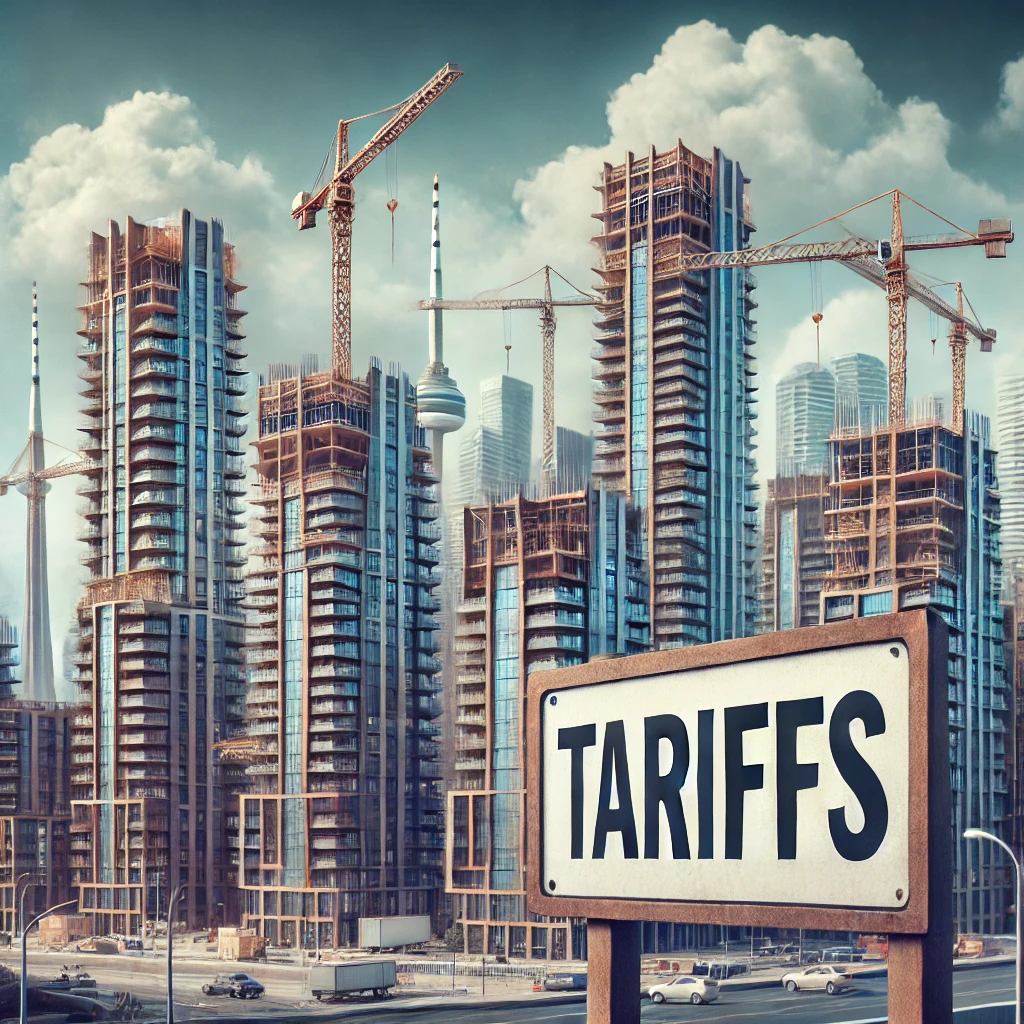The Ontario real estate market is influenced by various economic factors, including interest rates, supply and demand, government policies, and international trade. Among these, tariffs play a crucial but often overlooked role. Whether imposed on construction materials or other industries, tariffs can significantly impact the cost of housing, mortgage rates, and development in Ontario.
Understanding Tariffs and Their Effect on Real Estate
Tariffs are taxes or duties imposed on imported or exported goods, often meant to protect domestic industries or generate government revenue. While typically linked to trade policy, their effects extend into the housing market by increasing construction costs and influencing borrowing conditions.
Recently, the United States has threatened to impose new tariffs on Canadian goods, which could further disrupt industries linked to real estate, including construction and manufacturing. Any escalation in trade disputes could lead to higher costs for materials and uncertainty in the market.
Tariffs on Construction Materials and Rising Home Prices
One of the most direct ways tariffs impact Ontario real estate is through construction costs. Many essential building materials—such as steel, lumber, aluminum, and appliances—are imported from other countries, particularly the U.S. Tariffs on these materials increase costs for builders, which ultimately affects housing prices.
For example, U.S. tariffs on Canadian lumber led to increased costs for builders in Ontario. Combined with global supply chain disruptions, this contributed to higher prices for new homes and renovations. As the cost of construction rises, developers pass these expenses onto buyers, making homeownership less affordable.
Additionally, tariffs on steel and aluminum impact infrastructure projects and condominium developments, leading to delays or cost overruns. Buyers investing in pre-construction properties may find themselves paying more than anticipated, affecting their financial planning and mortgage eligibility.
Tariffs and Mortgage Rates: The Indirect Connection
While tariffs often create inflationary pressures by increasing the cost of goods, the Bank of Canada has recently taken steps to counteract these effects. Instead of raising interest rates, the Bank of Canada has responded by reducing rates to provide economic relief and stimulate borrowing. Lower interest rates can improve affordability for homebuyers by reducing mortgage costs. However, if new tariffs from the U.S. disrupt supply chains and drive up prices, inflationary concerns could resurface, potentially influencing future rate decisions.
Impact on Commercial Real Estate and Development
Tariffs affect not only residential transactions but also commercial real estate. Higher construction costs mean that commercial developments—such as office buildings, retail spaces, and industrial warehouses—become more expensive to build. If costs become prohibitive, developers may delay or cancel projects, leading to reduced commercial real estate supply.
Furthermore, tariffs on imported technology, equipment, or retail goods can affect businesses leasing commercial properties. If businesses face higher operational costs due to tariffs, they may be less inclined to expand, lease new spaces, or renew existing leases at higher rates. This can impact rental yields for commercial property investors in Ontario.
Conclusion
Tariffs have a tangible impact on real estate transactions in Ontario, from increasing construction costs to influencing mortgage rates and commercial development. The recent threat of new U.S. tariffs adds further uncertainty, potentially affecting housing affordability and investment decisions. While the Bank of Canada’s interest rate reduction provides some relief to homebuyers, ongoing trade tensions may shape future policies. As the market evolves, staying informed about trade policies and economic changes is crucial for buyers, sellers, and investors navigating Ontario’s real estate landscape.
Should you wish to discuss this blog please contact to Eran Gevantschniter a real estate lawyer in Toronto at 416.777.6788 or email him at eran@eranlaw.com

